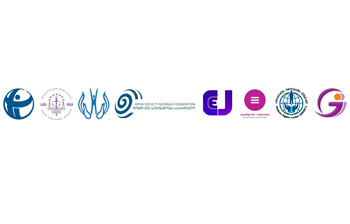Non-governmental organizations address to the Parliament of Georgia with regard to the draft law on state secrets
February 4, 2015

In a few days, the Parliament of Georgia plans to discuss the bill on state secrets in the second hearing; the author of the bill is inter-agency working group, and the initiator is MP Irakli Sesiashvili. The bill should replace the legislative act, which was adopted in 1996. The proposed version is mostly repeats the provisions and structures in the acting law and does not meet international standards. There are several shortcomings in it and we believe it is inadmissible to pass the bill in the current form.
It should be noted that Ministry of Justice together with the civil society organizations actively work on the elaboration of the law on the Freedom of information. We are concerned with the fact that such an important bill, which refers to the issues related with the state secrets, was prepared separately from and prior to the bill on freedom of information. State secret is an exception while the openness of information is the main principle. In the situation, when the parliament determines the exception through the new bill, we face serious risks for ensuring the freedom of information in the country. It should be noted that organizations who have expertise and experience in the field of accountability and transparency were not involved in the preparation of the new draft law about "state secrets.” Accordingly, the bill under consideration of the Parliament aims to address and determine some technical issues in the view of state institutions and does not reflect current international standards of freedom of information. Unfortunately, several meeting of the Parliament with the non-governmental and international experts after the first hearing of the bill did not result into essential amendments to the initial version of the draft-law.
The new bill about State secrets does not meet the challenges in the field and cannot substantially improve the current edition of the law about state secrets. For example, official version of the bill does not mention the test of public interest4 and the so-called “Harm test"5is formulated very weakly. The bill (as well as the current edition of the law) imposes the main role of protecting the state secret on the MIA that is inadmissible for set of reasons6 while taking into account international standards, it will be better if independent body hold the supervisory functions. The proposed bill does not provide relevant guarantees for the protection of the denounces and it does not regulate existing significant problems in the field of state secrets in terms of criminal liability of journalists if they disclose state secrets.
At the same time, the draft law further deteriorates some provisions in the current edition of the law. Namely: circle of those normative acts is extended, which might belong to the state secret list; person holding top secret status does not have obligation to give well-grounded response to the motivated proposal on disclosing the information; the term to check the person before admission him to the state secret is increasing; besides that, the refusal on admission to the state secret might relay on vague criteria, the circle of secret information is increasing, etc.
4When interest of disclosing the information is higher than the interest to keep it in secret, the information shall be disclosed;
5The information shall be considered secret through assessing the harm it can bring to the state interests if it is disclosed;
61) generally, the MIA possesses huge amount of secret information and as a rule is desired to make as much information secret as possible;
2) MIA might use this authority for the collection of information obtaining of which it might need the court permission in other situation; 3) no accountability of the MIA in the implementation of similar activities is prescribed in the draft law
According to the above considerations, the undersigned organizations call on the Parliament of Georgia to decline the bill on state secret particularly in its current form; and to start consideration only in the frame of and in parallel of the new draft law on the Freedom of Information.
• Transparency International Georgia
• Georgian Young Lawyers’ Association
• Article 42 of the Constitution
• Open Society Georgia Foundation
• Georgian Charter of Journalistic Ethics
• Identoba
• Human Rights Centre
Georgian Democracy Initiative
News
December 13, 2023
Ethnic minorities outside the peace dialogue
November 6, 2023
‘Peace’ agenda of political parties
Popular
Articles
February 13, 2024



